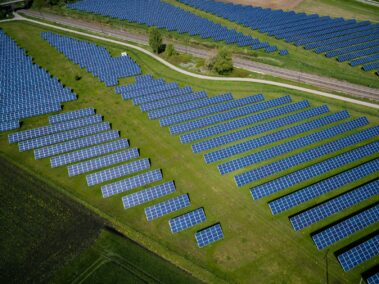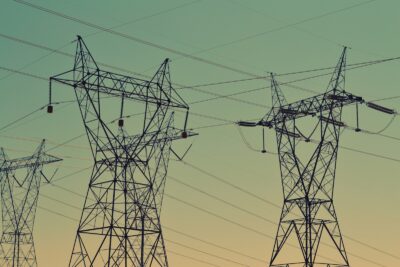Optimizing Stability and Efficiency in Sustainable Power Systems
Harnessing the Power of AI for Renewable Energy Grids
The integration of AI in managing renewable energy grids is revolutionizing the way power systems operate, particularly in regions like Saudi Arabia and the UAE. As the demand for renewable energy continues to rise, AI technologies offer advanced solutions for optimizing grid stability and efficiency. By leveraging machine learning algorithms and predictive analytics, AI systems can forecast energy production, balance supply and demand, and mitigate potential disruptions. For business executives and entrepreneurs, understanding the transformative potential of AI in renewable energy management is essential for driving innovation and sustainability in the energy sector.
One key application of AI in renewable energy grids is predictive maintenance. AI-powered monitoring systems analyze vast amounts of data from sensors and IoT devices to detect early signs of equipment failure. By identifying potential issues before they escalate, utilities can reduce downtime, lower maintenance costs, and enhance overall grid reliability. In cities like Riyadh and Dubai, where energy infrastructure plays a critical role in supporting economic growth, AI-driven predictive maintenance can ensure continuous power supply and minimize disruptions for businesses and residents alike.
Moreover, AI plays a crucial role in optimizing renewable energy integration into the grid. As solar and wind power sources become increasingly prevalent, managing their intermittency poses challenges for grid operators. AI algorithms can dynamically adjust energy dispatch and storage strategies based on real-time data, maximizing renewable energy utilization while maintaining grid stability. This capability is essential for achieving ambitious renewable energy targets and reducing reliance on fossil fuels. Through effective AI implementation, countries can accelerate their transition to a sustainable energy future.
Enhancing Grid Resilience and Adaptability
The adoption of AI in managing renewable energy grids enhances grid resilience and adaptability to changing conditions. AI-powered grid management systems can quickly respond to fluctuations in energy supply and demand, optimizing grid operation in real-time. This agility is particularly valuable in regions prone to extreme weather events or sudden shifts in energy production. By integrating AI into grid control centers, utilities can improve response times, prevent blackouts, and ensure continuity of service for consumers.
Furthermore, AI facilitates the optimization of energy storage systems, such as batteries and pumped hydro storage. By analyzing historical data and weather forecasts, AI algorithms can optimize charging and discharging schedules to maximize energy storage capacity and efficiency. This capability is crucial for balancing supply and demand in renewable energy-dominated grids and enhancing overall grid resilience. In the context of Saudi Arabia and the UAE, where renewable energy plays an increasingly significant role in the energy mix, AI-driven energy storage optimization is a strategic priority for ensuring energy security and reliability.
Leadership and management skills are essential for the successful implementation of AI in renewable energy grids. Leaders in the energy sector must possess the vision and strategic foresight to drive digital transformation and navigate regulatory landscapes. Project management expertise is also crucial for overseeing the deployment of AI systems, from initial pilot projects to full-scale integration. Effective communication and stakeholder engagement are paramount for building trust and ensuring collaboration among utilities, technology providers, and policymakers.
Conclusion: Paving the Way for a Sustainable Energy Future
In conclusion, the integration of AI in managing renewable energy grids is paving the way for a sustainable energy future in regions like Saudi Arabia and the UAE. By harnessing the power of AI-driven analytics and optimization, utilities can enhance grid stability, improve efficiency, and accelerate the transition to renewable energy. For business executives, mid-level managers, and entrepreneurs, embracing AI technologies presents opportunities for innovation, competitiveness, and environmental stewardship.
The journey towards AI-enabled renewable energy grids requires strategic leadership, technological expertise, and collaboration across sectors. By investing in AI research and development, fostering public-private partnerships, and promoting knowledge sharing, countries can unlock the full potential of AI to transform their energy systems. As we strive towards a greener and more sustainable future, AI will continue to play a central role in shaping the energy landscape and driving positive change for generations to come.
#AI #RenewableEnergyGrids #Sustainability #SaudiArabia #UAE #Riyadh #Dubai #ChangeManagement #ExecutiveCoaching #BusinessSuccess #ManagementConsulting #ArtificialIntelligence #Blockchain #TheMetaverse #GenerativeAI #LeadershipSkills #ProjectManagement























